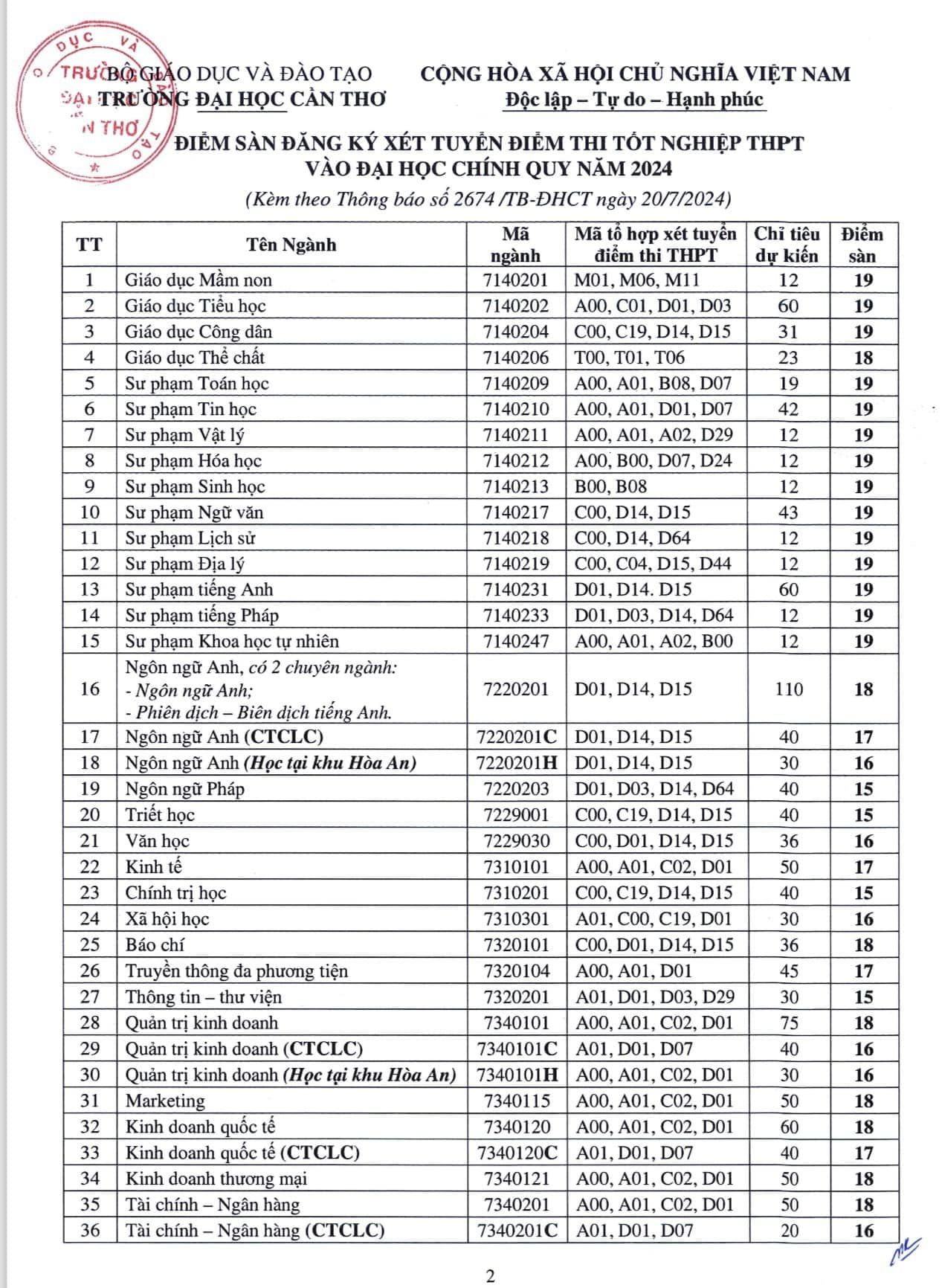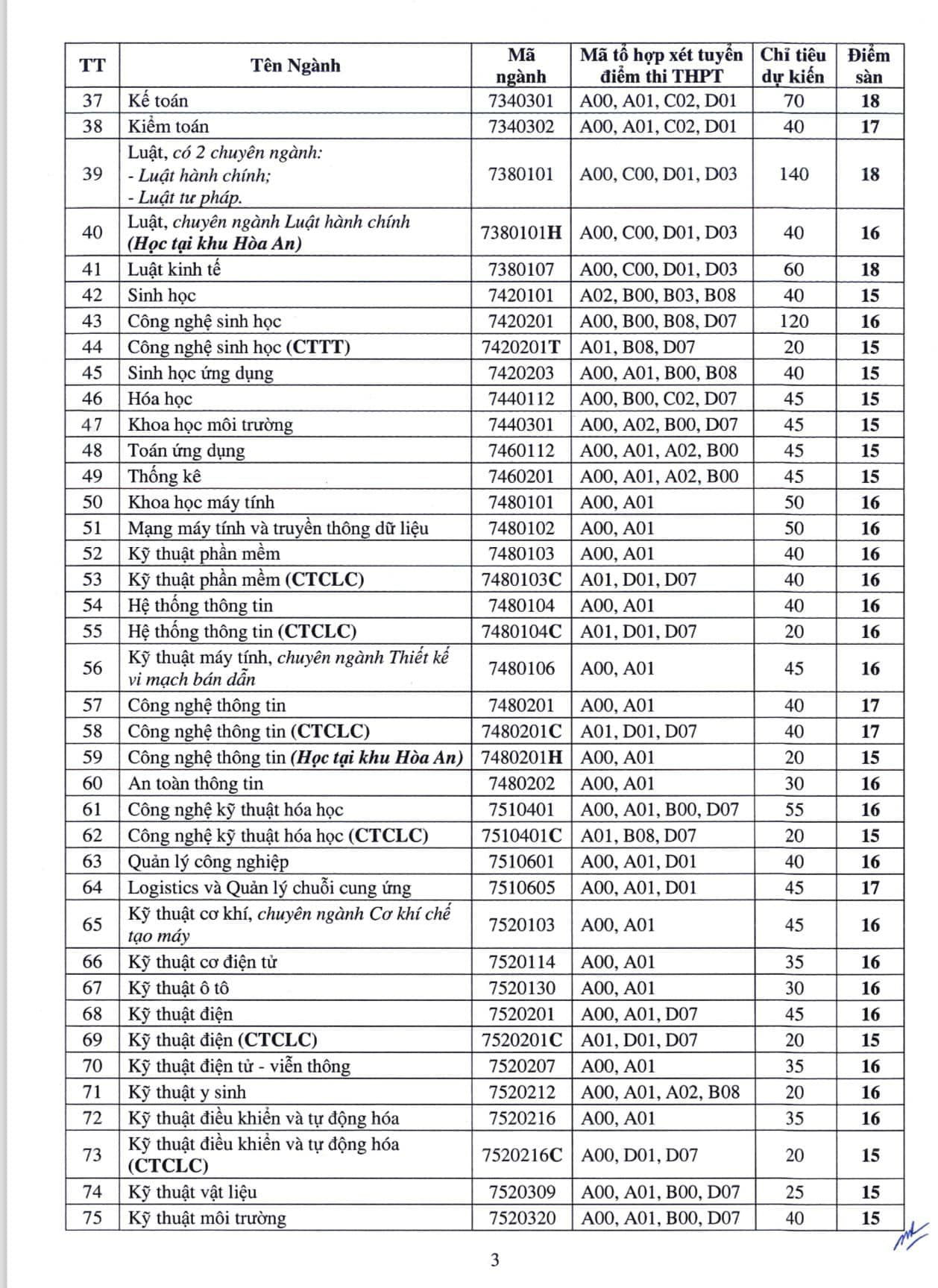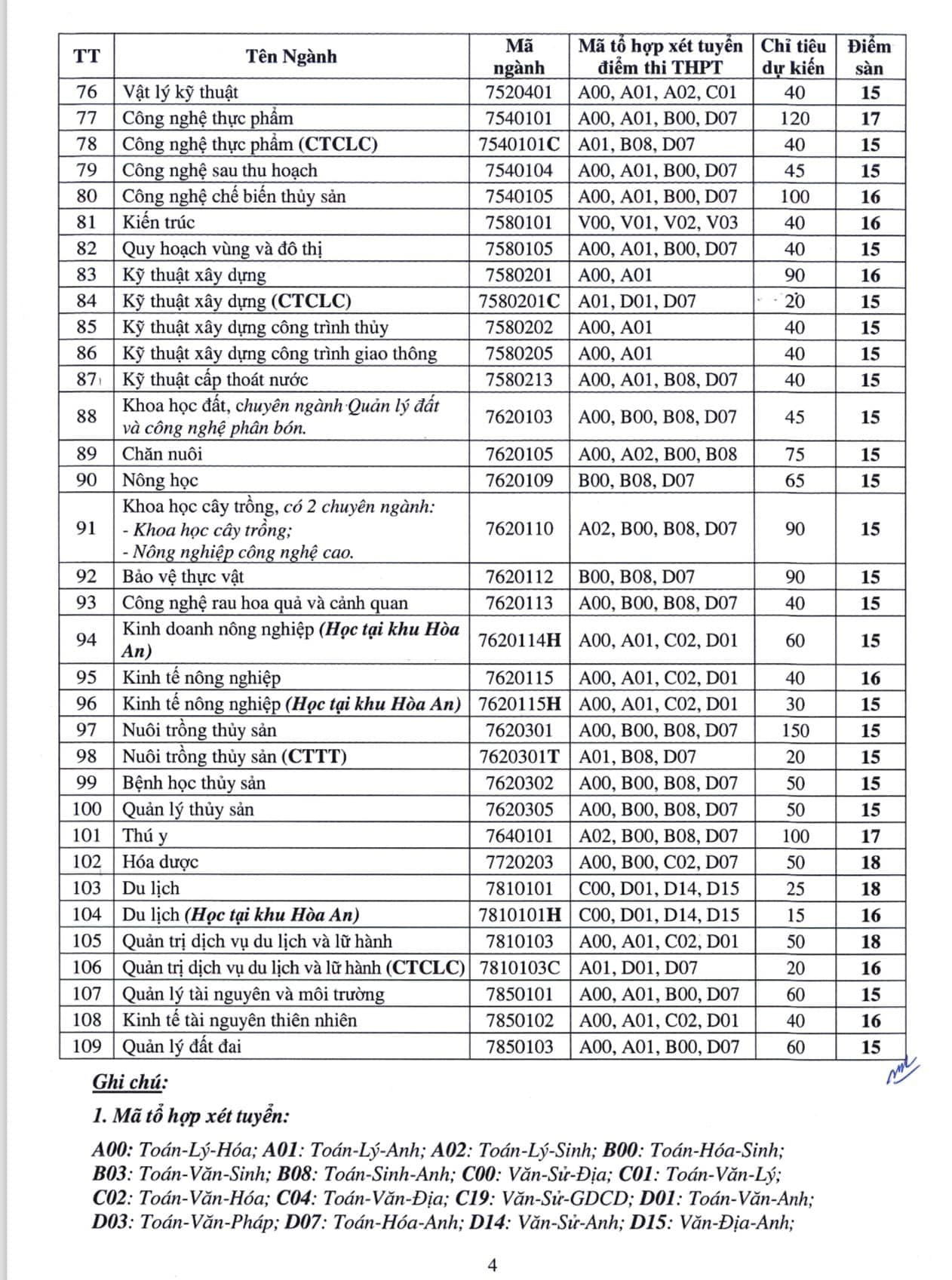Vietnam: What are the minimum admission scores for full-time undergraduate programs at Can Tho University in 2024?
What are the minimum admission scores for full-time undergraduate programs at Can Tho University in 2024?
Recently, under Announcement 2673/BB-DHCT-HDTS of the Enrollment Council of Can Tho University for determining the minimum admission scores for full-time undergraduate programs in case of admission by the 2024 high school graduation exam results, Can Tho University has announced the minimum admission scores for 2024.
>> See Announcement 2673/BB-DHCT-HDTS of 2024: Download
The minimum admission scores for full-time undergraduate programs at Can Tho University in case of admission by the 2024 high school graduation exam results are as follows:




What are the minimum admission scores for full-time undergraduate programs at Can Tho University in 2024? (Image from the Internet)
What are the region-based priority points when applying to Can Tho University in 2024?
According to Article 7 of the Regulation promulgated together with Circular 08/2022/TT-BGDDT, the region-based priority points are as follows:
(1) Priority points:
- Priority points for Region I (KV1) will be 0.75 points,
- Priority points for rural Region II (KV2-NT) will be 0.5 points,
- Priority points for Region II (KV2) will be 0.25 points,
- Region III (KV3) does not get priority points.
(2) Each candidate's recruitment area is determined based on the location of the school where the candidate studied the longest during upper secondary school (or post-secondary); if the time spent studying in each area is equal, the recruitment area is determined based on the location of the last school attended;
(3) The following cases are entitled to region-based priorities based on their place of permanent residence:
- Students of ethnic minority boarding schools entitled to state policies of priorities and incentives as prescribed;
- Students whose permanent residence (during upper secondary school or post-secondary studies) has been for more than 18 months in communes with regions 3 and communes with villages facing special difficulties in ethnic minority and mountainous areas as regulated by the Minister, Chairman of the Committee for Ethnic Minority Affairs, and the Prime Minister of the Government of Vietnam; particularly disadvantaged communes in coastal sandy regions and islands;
- Particularly disadvantaged communes, border communes, and communes in safety zones as part of the investment in Program 135; particularly disadvantaged villages and communes in the regions as prescribed by the Prime Minister of the Government of Vietnam, if studying at an upper secondary school (or post-secondary school) located in a district, township, city under the province containing at least one particularly disadvantaged commune.
- Soldiers; officers, non-commissioned officers, and conscripts in the People's Public Security force who are dispatched to take the exam, if they have been stationed for 18 months or more in a given area, they are entitled to regional priorities based on that area or their place of permanent residence before enlistment, depending on which area has a higher priority level; if stationed for 18 months or more in areas with different priority levels, they are entitled to the priorities of the area where they were stationed the longest; if stationed for less than 18 months, they are entitled to the region-based priority of their place of permanent residence before enlistment;
(4) From 2023 onwards, candidates are entitled to a region-based priority policy in the year of upper secondary school graduation (or post-secondary school) and the following year.
Therein, 03 regions are allocated points as follows:
According to Appendix I issued together with Circular 08/2022/TT-BGDDT, the recruitment regions are divided as follows:
| Region | Description and Conditions |
| Region I (KV1) | Areas in regions I, II, and III and extremely disadvantaged villages in ethnic minorities and mountainous areas; extremely disadvantaged coastal and island areas; extremely disadvantaged communes, border communes, and safety zones under investment from Program 135 according to the Prime Minister's regulations. |
| Rural Region II (KV2-NT) | Areas not in KV1, KV2, or KV3; |
| Region II (KV2) | Townships, provincial cities; townships, and suburban districts of centrally-governed cities (excluding KV1 communes). |
Is fairness towards candidates required upon admission to full-time undergraduate programs by aspirations in Vietnam?
Under Article 4 of the Regulation issued together with Circular 08/2022/TT-BGDDT, the basic principles in enrollment for full-time undergraduate programs by aspirations are defined as follows:
Basic principles in enrollment
1. Fairness towards candidates
a) Information provision: Each interested candidate must be provided with complete, clear, reliable, consistent, and prompt information to make appropriate decisions and best prepare for enrollment;
b) Opportunity to apply: No candidate should lose their opportunity to apply due to unrelated regulations (except specific regulations by the Ministry of Public Security and the Ministry of National Defense in defense and security fields) or because of cumbersome, costly procedures;
c) Capability assessment: Candidates must be objectively, fairly, and reliably assessed on their academic abilities and potential success to meet the requirements of the program and field of study;
d) Admission opportunity: Candidates should have the highest opportunity to be admitted and the right to determine preferred fields and programs they qualify for;
đ) Fulfillment of commitments: Training institutions must fulfill their commitments to candidates; provide advice, support, and address complaints to protect candidates' legitimate rights in cases of risk.
2. Equality among training institutions
a) Cooperation: Training institutions should cooperate on equal terms to improve the quality and efficiency of enrollment, bringing the best benefits to candidates;
b) Competition: Training institutions should engage in honest, fair, and healthy competition in enrollment according to the law on competition.
...
Fairness towards candidates is a general principle in enrollment, including admission by aspirations.

